Trudeau announces his resignation: An article to understand his nine years in office, the ups and downs, and where Canadian politics is heading
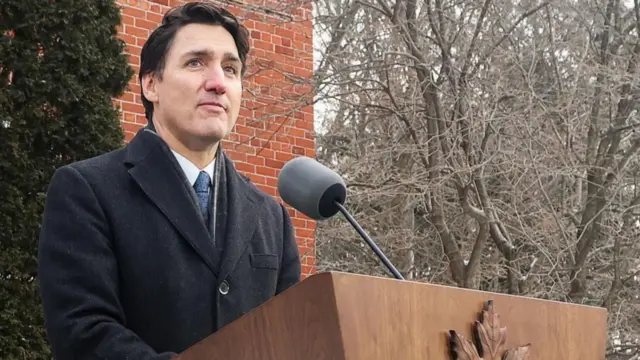
- Jessica Murphy & Holly Honderich
- BBC reporter
For the past few months, Canadian Prime Minister Justin Trudeau has been asked, in various ways: "Will you resign?"
Although he has vowed to remain as leader of the Liberal Party - despite deepening voter frustration and political opponents rising in the polls - even the self-proclaimed "fighter" cannot resist the growing voices in his own party calling for him to step down.
"This country deserves a real choice at the next election, and it's clear to me that I can't be the best choice for that election if I have to fight an internal battle," Trudeau said as he announced his resignation Monday, standing outside his official residence, Rideau Cottage.
After announcing his resignation, Trudeau will continue to serve as prime minister until a new Liberal Party leader is elected, and the specific date has not yet been determined.
Trudeau has asked for Parliament to be prorogued, or suspended, until March 24 to give his party time to find a new leader.
Looking back at Trudeau’s nearly decade in power, he has been seen as the new face of progressive politics.
In 2015, many voters were attracted by his youthful charm and hopeful political message, pushing the Liberal Party from the third-most popular party to the largest party in Parliament - an unprecedented event in Canadian political history.
Today, Trudeau is the only one of his former colleagues still in office, from Barack Obama to Angela Merkel, Shinzo Abe and David Cameron. At 53, he is currently the longest-serving leader of the G7 group of leaders.
Yet, two elections in the time since he burst onto the global stage, Trudeau and his brand have become a liability to his party’s prospects.
Canadian political journalist Paul Wells recently told the BBC that he believed Trudeau would be remembered as "an influential" prime minister, particularly for his leadership on issues such as reconciliation with Indigenous peoples and some climate policies.
But he is also a leader who is "increasingly out of touch with public opinion and increasingly unable to adapt to the changing times."
On Monday, Trudeau quickly listed accomplishments he was proud of during his time in office, including his response to the tumultuous coronavirus pandemic, his renegotiation of a free trade agreement with the Trump administration and his implementation of a child benefit policy widely credited with helping to alleviate poverty.
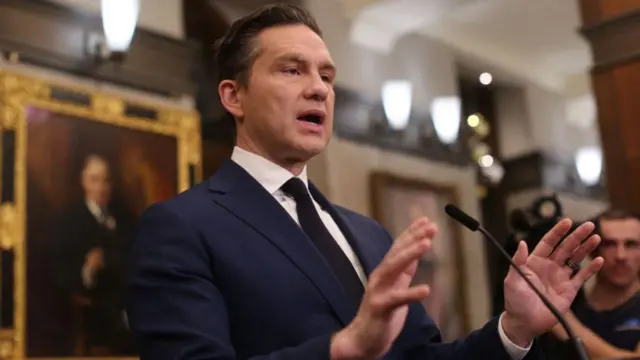
However, a series of early ethics scandals began to tarnish his administration's luster -- he was found to have violated federal conflict-of-interest rules involving his handling of an embezzlement investigation -- the SNC-La Valen affair, as well as lavish trips to the Bahamas.
In 2020, he was questioned for choosing a charity linked to his family to manage a major government project.
His party was reduced to a minority in the 2019 election, meaning the Liberals must rely on support from other parties to remain in power.
The 2021 snap election did not improve their fortunes.
More recently, Trudeau has faced headwinds from rising living costs and inflation in Canada, factors that have fueled electoral unrest around the world.
In Canada, frustration is also growing over failed major promises being delivered - with commentators calling Trudeau's agenda "overstuffed, overcrowded" and his handling of issues such as immigration under fire.
Late last year, the Liberals backed off from ambitious immigration targets amid concerns about mismanagement of the issue, significantly reducing the number of newcomers entering Canada.
He has also at times handed opponents easy political victories, including after it was revealed that as a young man he had painted his face black or brown at parties.
After more than nine years in power, he has become one of Canada's longest-serving prime ministers, but there is now widespread public fatigue and frustration with his government.
Therefore, the situation is clear.
A series of political blows have made it clear that Trudeau's days in power are numbered. Over the summer, Canadian voters rejected Liberal candidates in several special elections, and the losses in previously safe Liberal seats have led to unrest within the party.
He has become an increasingly controversial figure for voters - Trudeau said on Monday it was "time for a reset" to "cool down politics" in Canada.
Andrew Perez, principal adviser at Perez Strategy, told the BBC the challenge now for the Liberals is how to distance themselves from Trudeau's brand.
"That was a big part of their success, but at some point it stopped working," the Liberal strategist said.
The Liberal Party has hit new lows in recent weeks as attempts to change the situation through a cabinet reshuffle and tax cuts have failed.
The festive period poll by the Angus Reid Institute think tank showed support for the party at its lowest level since 2014.
Polls show the conservative party, led by Pierre Poilievre, a 45-year-old career politician with a sharp campaign slogan, would win easily if the election were held today.
The next election must be held no later than October, although both Poliev and New Democratic Party Leader Jagmeet Singh have said they will seek to get Canadians to vote as soon as Parliament reconvenes in March.
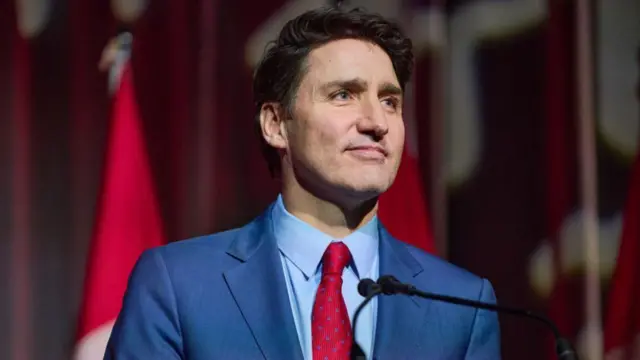
The situation comes amid growing political instability amid multiple challenges facing the country — particularly as U.S. President-elect Donald Trump pledged to impose a 25% tariff on Canadian goods when he took office on Jan. 20.
Yet Trudeau seemed determined to hold on until the last minute and said he wanted to face Poliev, his ideological opponent, in the election.
But the final straw came in mid-December when Trudeau's key deputy, former finance minister Chrystia Freeland, shocked the world by resigning, accusing the prime minister of failing to take Trump's threats seriously.
Members of his own party began to openly express opposition to his leadership.
With that, the last domino fell.
What's next for Canada?
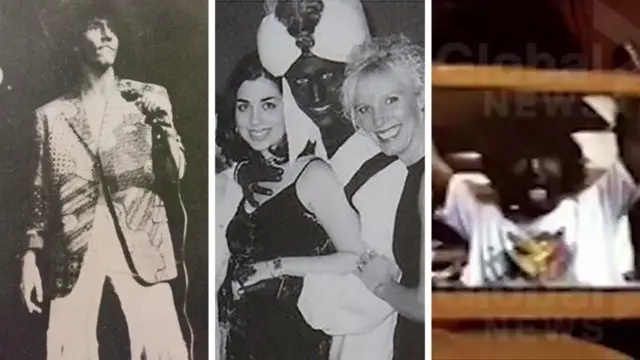
His resignation marks the end of a long political chapter in Canada. Trudeau has been in office since 2015, when he led the Liberal Party back to power from a political trough.
Trudeau has said he will remain prime minister until a new Liberal leader is chosen. However, many questions remain unanswered for the Liberals, including who will take over and how the party will respond to the upcoming federal election.
What happens next?
What is a congressional recess?
In an address to Canadians on Monday (January 6), Trudeau said Canada's governor general had accepted his request for a prorogation of Parliament - essentially a suspension of Parliament that would stop all proceedings, including debates and voting, but would not dissolve Parliament.
While this is routine practice in parliamentary procedure, sometimes governments use the measure to buy time during political crises.
Trudeau last prorogued Parliament in August 2020, as his government faced an ethics scandal over its handling of a contract with a charity.
The recess will suspend Congress until March 24.
Who will lead the Liberal Party?
The Liberal cabinet is likely to select a new leader before the recess ends, although it is unclear how that leader will be chosen.
Typically, the leader of a Canadian federal party is chosen within four to five months, a process that includes a formal leaders' conference. Trudeau said Monday that the new leader would be chosen through a "robust, nationally competitive process."
Hurriyat Party president Sachit Mehra later said the party would hold a national committee meeting this week to elect a new leader.
There is no clear successor, but several high-profile Liberals, including former Finance Minister Chrystia Freeland, Transport Minister Anita Anand and former central bank governor Mark Carney, are seen as possible leaders.
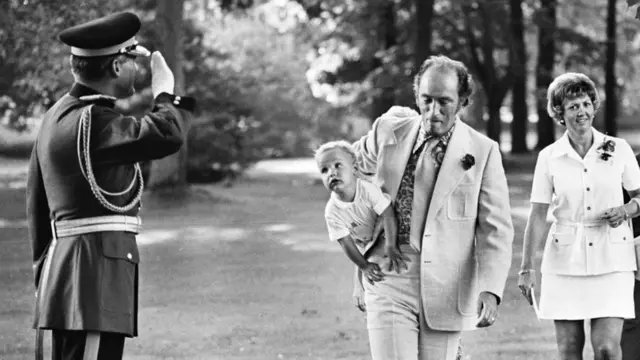
When are elections held in Canada?
Canada must hold its next federal election by October of this year, but will most likely vote before then.
The opposition Conservative Party, which holds a double-digit lead in the polls, has tried to trigger an election through a series of no-confidence votes over several months.
The government now needs the support of a majority of the 338 MPs in the House of Commons in a no-confidence vote. The Liberals are 17 seats short of that number, which means they will need the support of members of other parties.
So far, members of the left-wing New Democratic Party (NDP) have provided enough votes to keep Trudeau in power.
But on Monday, after Trudeau announced he would step down, NDP President Jagmeet Singh said he would vote the Liberals out no matter who the new leader is.
“They don’t deserve another chance,” he said.
Whoever takes the Liberal leadership will not have much time to govern before March 24.
The first vote after the recess will be a confidence motion. If the government loses this confidence motion, it is expected to resign or seek to dissolve Parliament, which would trigger a federal election.
Polls show that if Canada's election were held today, the official opposition Conservative Party would win a decisive victory.
Who is Opposition Leader Pierre Poliev?
Pierre Poilievre is the leader of the Conservative Party of Canada and, if the polls are correct, he is very likely to become Canada's next prime minister.
Since taking over as party leader in 2022, Poliev has been a particularly strong opponent of Prime Minister Trudeau, frequently calling on Trudeau to call early elections.
Poliev has cast himself as an anti-elite and anti-Trudeau commoner.
He was expelled from Parliament in April for refusing to call Trudeau a "lunatic" and an "extremist" during question time.https://gillspaste.com/sstvsu6tg?key=3c6a2f0c348249bd18222793323d13fd
Comments
Post a Comment